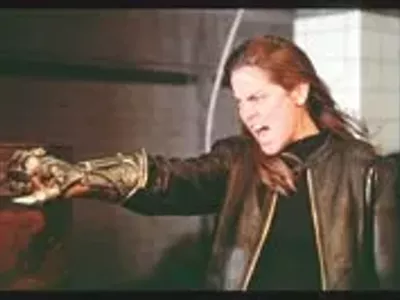Lots of ink has been devoted to the Michigan Supreme Court case regarding concealed weapons. And for good reason. The high court must decide — after hearing oral arguments last week and before the law takes effect July 1 — whether a referendum can challenge the new law, which would allow anyone over 21 without a felony or mental illness to obtain a concealed weapons permit.
Lost amid the media’s gun hoopla, however, is a similar case the Supreme Court is simultaneously reviewing — involving MGM Grand’s temporary casino.
In 1998, the Detroit City Council passed an ordinance rezoning land so that MGM Grand could build a temporary casino. The Community Coalition for Empowerment, Inc. submitted petitions for a referendum asking voters to repeal the zoning ordinance. Community Coalition president Ernest Johnson says that the grassroots group wanted to ensure that all the casinos were Detroit-owned. Without the proper zoning, the Las Vegas-based casino business may not have been able to open here.
About a month after the referendum was approved, the council voted to repeal the zoning ordinance. But the same day the council also passed another ordinance — with the exact language as the one repealed — except it tacked on appropriations to pay for costs incurred by the city. The Coalition again collected signatures for a referendum. But this time, the city clerk — citing the city charter — said that local laws that include appropriations cannot be challenged by a referendum. Johnson suspects that the council added the appropriations to the zoning law to prevent the public from challenging it.
A lawsuit was filed in Wayne County Circuit Court before Chief Judge Michael Sapala, who ruled that a referendum could not repeal an appropriations law. The Coalition appealed.
In the meantime, the concealed weapons law case made its way to the Supreme Court. Like the MGM Grand case, when the state Legislature passed the gun law it tacked on a $1 million appropriation, possibly making it referendum-proof, since the state Constitution — in most cases — bars voter review of appropriations laws. Before the Appellate Court ruled on the MGM case, the Supreme Court took it over since it involves the same legal issues as the gun law one.
Attorney Peter H. Ellsworth, who represents both MGM Grand Detroit, LLC, and gun-law advocates, says the high court is likely to decide the cases the same way.
If the court sides with Ellsworth’s clients, state and local lawmakers could have free rein to strategically add appropriations to any law the public might want to challenge.
News Hits suggests that the Supreme Court do the right thing: Let the people retain the power to repeal laws they object to.
Ann Mullen contributed to News Hits, which is edited by Curt Guyette. He can be reached at 313-202-8004 or [email protected]





